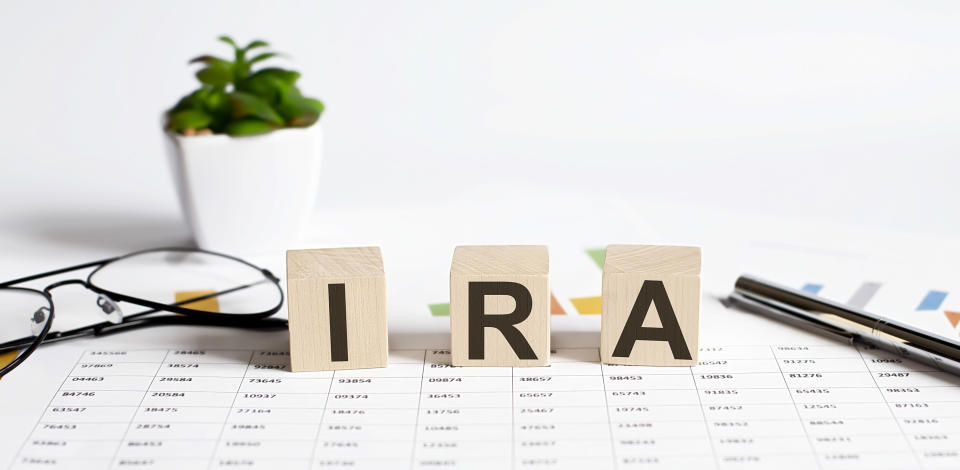Here's How To Move Your 401(k) When You Leave A Job — And Why You Probably Should
In 2021, more than 38 million Americans quit their jobs — and so far in 2022, the Great Resignation shows no signs of stopping.
Starz / Via giphy.com
Leaving an old job and starting anew can be really exciting (especially if it comes with a healthy pay bump). But it can also be a stressful time as you're learning a lot, getting into new routines, and trying to make a good impression. So sometimes things like figuring out what to do with your old 401(k) can slip through the cracks.
To get some expert insights and tips for anyone who's not sure what to do with an old 401(k), I reached out to Priya Malani, the founder and CEO of the financial planning firm Stash Wealth. Here's what we talked about:
Note: Keep in mind that personal finance is extremely personal, so some of these tips may not apply in your situation. For personalized recommendations, consult a financial planner.
1.First things first, what happens to the money in your 401(k) when you quit a job?

Explaining the basics of a 401(k), Priya says, "The quick and dirty: A 401(k) is a retirement account you get from the company you work for. Regardless of whether or not you plan to work at the same place for the next two months or the next 20 years, your contributions are always yours. And if your company offers a match, they’re essentially contributing to your account, too. That’s basically 'free' money on top of your salary."
Psst, if you could use a more of a 401(k) refresher, we've got you. Check out these 15 401(k) facts to get all the basics down.
2.If your employer offers a match, is that money automatically yours too?
Fox / Via giphy.com
Funds you get from your employer match might not be all yours when you leave, depending on the vesting schedule. Employers use vesting to encourage workers to stick around, so the money they contribute might not be yours to keep until you've been with them for a certain number of years. Companies handle vesting in a variety of ways, so it's best to check with your company's plan administrator to get all the deets about what happens to your employer's contributions.
3.Sooo, asking for a friend, what if you haven't touched a 401(k) from a job you had a few years ago? Can you still make moves?
CBC / Via giphy.com
Yes, you can! Priya says that your old 401(k)s are not going anywhere. "Your money will continue to sit in your old 401(k) until you’re long gone if you let it. It is your money. But if the balance is under $1,000, your old company will probably just cut you a check and call it a day." BTW, if that happens, you will get taxed on this money.
"At the rate that we’re all switching jobs, odds are good you have more than one old 401(k) floating around out there," she continues. "Keeping all of that money in one place makes things way easier to manage when it comes to figuring out exactly how much money you have for retirement. Think about it like trying to get dressed for the day in a dirty house. Sure, you can dig for that one sneaker in the closet, and a shirt that’s in the bathroom, and a pair of pants from the dryer, and the socks on the couch, but wouldn’t it be easier if everything stayed in the dresser?" Wow, she did not need to drag my morning routine like that, but yes, she's absolutely correct. Keeping your money organized and together makes things way simpler.
4.What if you just leave your old 401(k) where it is?

"You have a few options when it comes to what to do with your old 401(k). We even wrote a post on this exact topic that dives into more detail," says Priya.
You might think the easiest thing to do is to leave your 401(k) with your former employer. But Priya says that this can be a mistake. "Don’t do this," she urges. "You can no longer contribute,≠ and if you were previously receiving an employer match, you aren’t anymore; hence you’ve lost one of the greatest benefits of a 401(k)." So yes, your contributions will remain invested if you leave them where they are. But you won't be able to contribute more, and your account may even lose money to fees. Moving your 401(k) gives you more control.
5.Should you roll an old 401(k) into a plan with your new employer?
NBC / Via giphy.com
If you decide not to leave your 401(k) where it is, you might move your money into your new employer retirement account. But depending on plan fees and other factors, this also may not be your best choice. Priya explains, "The issue here is that 401(k)s are often subject to higher fees and fewer investment choices than other retirement accounts like IRAs. While it may seem like a simple option, it’s probably not the best option on the table."
6.Is rolling a 401(k) into an IRA (Individual Retirement Arrangement) a better option?

When it comes to the 401(k) advice she gives most often, Priya says it comes down to one thing. "Roll your old 401(k) into a traditional IRA. This is where you walk away with the biggest win. All of your old retirement accounts are consolidated into one place, you are working with fewer fees because of the lack of employee sponsorship, and your investment options are nearly unlimited."
7.OK, so how in the heck do you roll your 401(k) into an IRA?
CBC / Via giphy.com
Not sure where you want to invest your retirement funds? If you feel confident about choosing stocks and funds and building your own portfolio, you might prefer to go with a brokerage.
However, Priya says she often advises clients to work with a robo-advisor instead because they make it really easy to pick a portfolio that fits your risk tolerance and age. "If your past job situation is fairly simple, we suggest a company like Betterment who makes this process easy. Fair warning: You’ll have to hop on the phone regardless of who you use — but Betterment will give you a script to follow." Another thing to like about Betterment is that they give you the option to choose a sustainable portfolio so your money goes into greener investments.
Once you've got your IRA account opened, you can contact your former employer to ask for a direct rollover. A direct rollover allows you to move your 401(k) without having taxes withheld, so it tends to be the best option for most people.
8.Alright, one last question. What happens if you took a loan out of your 401(k) that you're still paying back when you leave?

Priya says that taking out a 401(k) loan should be reserved for emergencies. "First and foremost: Don’t take a 401(k) loan out unless you’ve exhausted all other options. We’re talking for nothing less than actual sh*t on the fan should you take out a 401(k) loan."
OK, now that that's out of the way, here's what you need to know if you've already taken one of these loans. "If you quit your job with an outstanding 401(k) loan, your former employer may give you a brief time to pay back the loan, but be prepared to pay the loan back immediately upon termination with funds remaining in your 401(k)."
"Think about it: There is a cap on the amount of money you can take out in a 401(k) loan to half of your total balance. If you have $10,000 in your account, then you take a loan out for $5,000, and then quit your job, you still have an amount equal to your loan in your account (aka collateral). Like when your high school teachers used to make you hand over a shoe to get a hall pass. That was their way of making you come back to class. Having the amount you borrowed still in your account after the loan is taken out is the creditor’s way of ensuring you pay them back. And we haven’t even started on the tax repercussions."
TL;DR? Every penny you've contributed to your 401(k) is yours, but employer contributions may not be, depending on the vesting schedule. Either way, it's often best to take these funds with you when you leave your job. You wouldn't leave your favorite coffee mug or your struggling desk plant behind, so don't abandon your retirement fund when you quit either.
For more stories about work and money, check out the rest of our personal finance posts.

